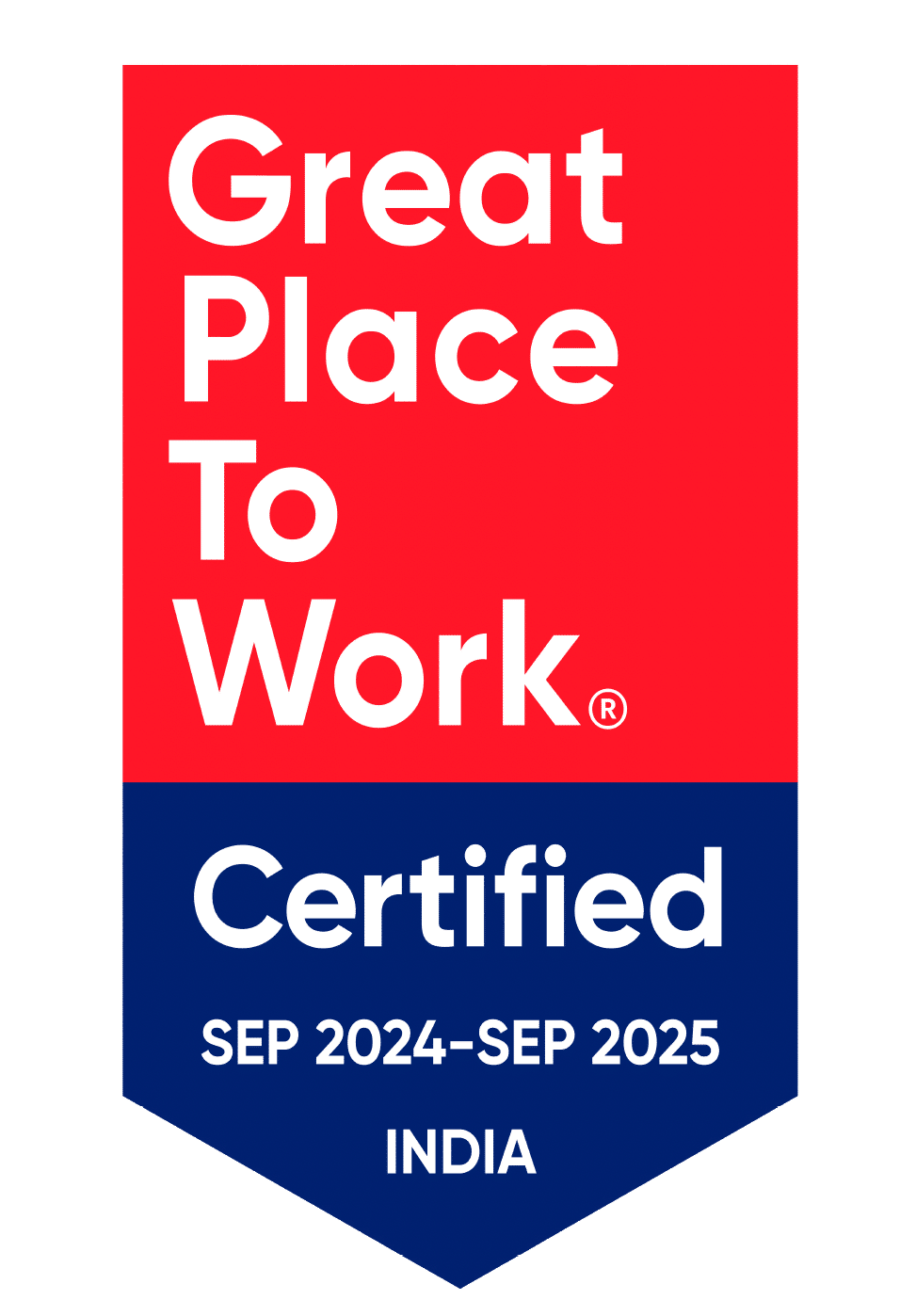Top Features of Learning Management System for Small Business:2025

A Learning Management System (LMS) for small businesses in 2025 should offer user-friendly course creation, mobile accessibility, automation for training management, and integration with business tools.
Key features include personalization, robust analytics, and cost-effective scalability to enhance employee learning and development.
Research shows that around 70% of organizations prioritize AI-driven automation and personalized learning to enhance employee engagement. Studies indicate that 60% of small businesses prefer mobile-friendly LMS platforms, ensuring accessibility and flexibility.
In this article, we will explore the top features of a Learning Management System (LMS) for small businesses in 2025. We will discuss key aspects such as AI-driven automation, mobile accessibility, seamless integration with business tools, and cost-effective scalability.
What is Learning Management System?
Top features to look for in a LMS for small business
User-Friendly Interface for Small Business LMS
A user-friendly interface is essential for small businesses when choosing a Learning Management System (LMS). An intuitive design ensures that both administrators and learners can efficiently access training materials without requiring extensive technical expertise.
Key Features of a User-Friendly LMS:
- Simple Navigation: Clear menus, organized categories, and logical course structures help users quickly find the information they need.
- Drag-and-Drop Course Builder: Enables administrators to create and modify courses effortlessly without needing coding skills.
- Dashboard Accessibility: A well-structured dashboard offers learners easy access to progress tracking, assignments, and upcoming training sessions.
- Mobile Compatibility: Responsive design ensures employees can access training materials on desktops, tablets, and smartphones.
- Minimal Learning Curve: A straightforward interface reduces the time required for employees and managers to adapt to the Learning Management System for Small Business.
- Search and Filter Options: Quick search functionalities help learners find relevant courses, documents, and training modules efficiently.
- Customization Options: Allows branding, personalized course recommendations, and role-based access for different users.
- Seamless Integration: Easily connects with third-party tools like HR software, video conferencing apps, and analytics platforms.
Mobile Compatibility in LMS for Small Businesses
With the rise of remote work and flexible schedules, mobile-friendly Learning Management Systems for small businesses are essential. Employees should be able to access training materials on their smartphones and tablets, ensuring a seamless learning experience regardless of location. A responsive design guarantees a consistent and user-friendly interface across all devices.
Key Features of a Mobile-Compatible LMS:
- Responsive Design: Adapts to different screen sizes, ensuring content remains readable and interactive on any device.
- Cross-Platform Accessibility: Works on iOS, Android, and Windows devices without requiring additional software.
- Offline Learning Mode: Allows users to download courses and complete training without an internet connection, syncing progress once online.
- Mobile App Availability: Dedicated lms for small business apps enhance accessibility and provide a smoother user experience.
- Push Notifications & Reminders: Alerts learners about upcoming deadlines, new courses, and progress updates.
- Cloud-Based Access: Ensures employees can start training on one device and continue another without losing progress.
- Multimedia Support: Optimized for videos, quizzes, interactive PDFs, and other mobile-friendly content formats.
- Secure Login & Data Protection: Implements encryption and multi-factor authentication to safeguard user data.
- Seamless Integration: Syncs with corporate tools like HR software, calendars, and communication platforms.
Customization and Branding in LMS for Small Businesses
Every business has unique training needs, and a Learning Management System for small business should reflect that. A well-designed LMS allows small businesses to tailor the platform to match their brand identity and training requirements. Customization options, including branding, content layout, and personalized learning paths, ensure that employees engage with training that feels relevant and aligned with company goals.
Key Features of a Mobile-Compatible LMS:
- Branding Integration: Add company logos, colour schemes, and custom themes to create a consistent brand experience.
- Custom Course Creation: Design training programs specific to business needs, roles, and skill levels.
- Flexible Content Layouts: Arrange learning materials, modules, and assessments in an intuitive and organized manner.
- Role-Based Access: Assign different permissions for admins, instructors, and learners to maintain control over content.
- Personalized Learning Paths: Create tailored training journeys based on employees’ roles, skills, and career progression.
- Language & Localization Support: Customize the best lms system for small business to support multiple languages and region-specific content.
- Custom Reports & Analytics: Generate insightful reports tailored to track employee progress and performance.
- Seamless Integration with Business Tools: Connect with existing HR systems, CRM, and communication platforms for a cohesive learning experience.
Cloud-Based Access in LMS for Small Businesses
A cloud-based Learning Management System for small businesses is a game changer, eliminating the need for expensive hardware, IT maintenance, and on-premises installations.
With a cloud-based LMS, training modules and employee progress can be accessed from anywhere, making it ideal for remote teams. Additionally, cloud storage ensures data security, seamless updates, and scalability as business needs grow.
Key Benefits of a Cloud-Based LMS:
- Anywhere, Anytime Access: Employees and administrators can access training materials from any device with an internet connection.
- Automatic Updates & Maintenance: The LMS provider handles system updates, ensuring businesses always use the latest version.
- Scalability & Flexibility: Easily add new users, courses, and integrations as the company grows.
- Data Security & Backups: Cloud storage provides encrypted security, automatic backups, and compliance with industry standards.
- Faster Deployment: Quick setup and implementation without requiring complex installations or configurations.
- Collaboration & Remote Learning: Enables teams in different locations to participate in training simultaneously.
- Seamless Integrations: Connects with third-party tools like HR software, communication platforms, and productivity apps.
- Multi-Device Compatibility: Works across desktops, tablets, and mobile devices for a consistent learning experience.
Cost-Effective Pricing
Small businesses often work within tight budgets, so an LMS with flexible pricing options is crucial. Subscription-based models, pay-per-user pricing, and free trials help businesses choose an affordable solution without compromising quality.
Key Benefits of a Cost-Effective Pricing
- Cost-Effective Solutions – Small businesses can choose from various pricing models, ensuring they only pay for what they need without overspending.
- Scalability – As the business grows, an LMS can scale with it, allowing companies to add more users and features without switching platforms.
- Risk-Free Trials – Many lms for small business providers offer free trials or demo versions, enabling businesses to test the system before making a financial commitment.
- No Hidden Costs – Transparent pricing structures prevent unexpected expenses, making budget planning easier and more predictable.
- High-Quality Training – Even with affordable pricing, a good
Course Management and Content Library
A Learning Management System for Small Business should allow businesses to create, upload, and organize training materials efficiently.
Many systems also come with pre-built course libraries covering essential topics like compliance, leadership, and customer service, saving businesses time and effort.
Key Benefits of Course Management & Content Library:
- Easy Course Creation – Build customized training programs with simple drag-and-drop tools, ensuring content is tailored to business needs.
- Pre-Built Course Library – Access ready-made courses on essential topics like compliance, leadership, and customer service, reducing development time.
- Organized Content Management – Store, categorize, and update training materials easily, ensuring employees always access the latest information.
- Multi-Format Support – Upload videos, PDFs, quizzes, and interactive content to create engaging learning experiences.
- Faster Employee Onboarding – Use structured courses to streamline training for new hires, ensuring they quickly adapt to their roles.
- Consistent Learning Experience – Standardized content ensures all employees receive the same high-quality training, improving knowledge retention.
Automated Training and Reminders
Automation is a key feature that helps small businesses streamline training. The best lms system for small business should include automated enrolment, progress tracking, and reminders for course completion. This ensures employees stay on track without constant manual follow-ups.
Key Benefits of Automated Training & Reminders:
- Time-Saving Enrolment – Automatically assign courses to employees based on their roles, eliminating manual registration.
- Effortless Progress Tracking – Monitor employee learning in real-time with dashboards and reports, reducing administrative workload.
- Automated Course Reminders – Send notifications to employees about upcoming deadlines, ensuring timely course completion.
- Improved Compliance – Ensure employees complete mandatory training on time with automated alerts and tracking.
- Personalized Learning Paths – Automatically recommend courses based on employee performance and skill gaps.
- Higher Course Completion Rates – Regular reminders and automated follow-ups keep employees engaged and motivated to finish their training.
Assessment and Certification Tools
A strong Learning Management System for Small Business includes quizzes, tests, and certification options to measure employee progress.
Automated grading and feedback help identify skill gaps, while certifications motivate employees and provide proof of compliance or skill development.
Key Benefits of Assessment & Certification Tools:
- Accurate Skill Measurement – Quizzes and tests assess employee knowledge, helping businesses track learning outcomes.
- Automated Grading & Feedback – Instantly evaluate responses and provide feedback, saving time for trainers and improving learning efficiency.
- Identifies Skill Gaps – Assessments highlight areas where employees need improvement, allowing businesses to offer targeted training.
- Boosts Employee Motivation – Certifications provide recognition for completed training, encouraging continuous learning and growth.
- Ensures Compliance – Certified employees meet industry regulations, reducing risks and ensuring legal compliance.
- Improves Career Development – Employees gain verifiable credentials that enhance their skills and career progression.
Integration with Other Business Tools
A good Learning Management System for Small Business should integrate seamlessly with existing business tools like HR software, project management platforms, and communication apps and easily integrates with Microsoft Teams makes collaboration and live training sessions easier.
Key Benefits of Integration with Other Business Tools:
- Smooth Workflow – Syncs with HR, payroll, and project management systems to reduce manual data entry and improve efficiency.
- Enhanced Collaboration – Integration with Microsoft Teams allows employees to join discussions, attend live training, and communicate easily.
- Automated Data Sharing – Training progress and completion records are automatically updated in HR and performance management systems.
- Improved User Experience – Employees can access training within familiar platforms, reducing the learning curve and increasing engagement.
- Faster Onboarding – New hires can start training immediately with seamless LMS and HR system integration.
- Stronger Compliance & Reporting – Automated syncing ensures accurate records for audits and compliance tracking.
Analytics and Reporting
Tracking employee progress is essential for evaluating training effectiveness. A Learning Management System for Small Business should provide detailed reports on course completion rates, quiz scores, and engagement levels.
This data helps businesses identify areas for improvement and optimize training strategies.
Key Benefits of Analytics & Reporting:
- Data-Driven Decision Making – Get insights into employee performance to improve training programs.
- Real-Time Progress Tracking – Monitor course completion rates, quiz scores, and engagement levels effortlessly.
- Identifies Skill Gaps – Pinpoints areas where employees need additional training for targeted development.
- Improves Compliance Monitoring – Ensures employees complete required training for regulatory compliance.
- Enhances Employee Performance Reviews – Provides measurable data to support evaluations and career growth discussions.
- Optimizes Training Strategies – Uses data insights to refine content, delivery methods, and engagement techniques.
Security and Compliance
Data security is a major concern for businesses of all sizes. A reliable best lms system for small business ensures compliance with industry regulations and protects sensitive information through encryption, access controls, and secure logins.
Businesses should also look for compliance training modules that keep employees updated on workplace policies.
Key Benefits of Security & Compliance:
- Protects Sensitive Data – Encryption and access controls safeguard employee and business information.
- Secure User Authentication – Multi-factor authentication and role-based access prevent unauthorized logins.
- Automates Compliance Training – Keeps employees up to date with mandatory workplace policies and regulations.
- Reduces Security Risks – Regular updates and monitoring prevent data breaches and cyber threats.
- Provides Audit-Ready Reports – Maintains records of completed compliance training for legal and regulatory audits.
Multi-Language Support
For businesses with diverse teams, multi-language support is a valuable feature. Employees can complete training in their preferred language, improving comprehension and engagement.
Key Benefits of Multi-Language Support:
- Improves Learning Comprehension – Employees understand training better in their native language.
- Boosts Engagement & Participation – Comfortable learning increases motivation and course completion rates.
- Supports a Global Workforce – Ideal for businesses with multilingual teams or international branches.
- Enhances Inclusivity – Provides equal learning opportunities for all employees, regardless of language barriers.
- Ensures Compliance Across Regions – Delivers localized compliance training tailored to specific regulations.
- Reduces Miscommunication – Eliminates misunderstandings caused by language differences in training materials.
Scalability
- Even small businesses plan to grow. best lms system for business should be scalable, allowing businesses to add more users, courses, and features as they expand.
- A platform that grows with the company ensures a long-term investment in employee development.
- Supports Business Growth – Easily add more users and training programs as the company expands.
- Cost-Effective Expansion – Scale up without switching platforms, saving time and money.
- Flexible Customization – Adapt the lms for small business with new features, integrations, and learning paths as needs evolve.
- Ensures Long-Term Use – A future-proof system avoids the hassle of frequent migrations.
- Handles Increasing Workloads – Maintains performance and efficiency as more employees join training.
- Improves Training Consistency – Ensures standardized learning experiences across all business locations.
Conclusion
A Learning Management System for Small Business is a game-changer in 2025, offering advanced features tailored to meet the needs of growing companies. From user-friendly interfaces and mobile compatibility to automation, analytics, and seamless integrations, a well-equipped LMS enhances training efficiency, ensures compliance, and boosts employee engagement.
Frequently Asked Questions
1. What are the key features to look for in a Learning Management System for small businesses?
A small business LMS should have a user-friendly interface, mobile compatibility, customization options, cloud-based access, and seamless integration with other business tools. Additional features like automated training, reporting, and compliance tracking also enhance efficiency.
2. Why is mobile compatibility important in an LMS for small businesses?
With remote work and flexible schedules becoming more common, mobile compatibility ensures employees can access training materials anytime, anywhere. Features like a responsive design, offline learning, and push notifications improve accessibility and engagement.
3. How does an LMS help small businesses with compliance and security?
A reliable LMS ensures compliance through automated training reminders, certification tracking, and audit-ready reports. It also includes security measures like encrypted data storage, multi-factor authentication, and role-based access control to protect sensitive information.
4. What are the benefits of cloud-based LMS for small businesses?
Cloud-based LMS platforms offer cost-effective and scalable solutions. They provide automatic updates, secure data storage, and remote access, allowing businesses to manage employee training without investing in expensive IT infrastructure.
5. How can automation improve training efficiency in an LMS?
Automation features like course enrolment, progress tracking, and reminders save time for administrators and ensure employees complete their training on schedule. Automated reports help businesses monitor performance and identify areas for improvement.













_Rapo0hRMBy.png)










